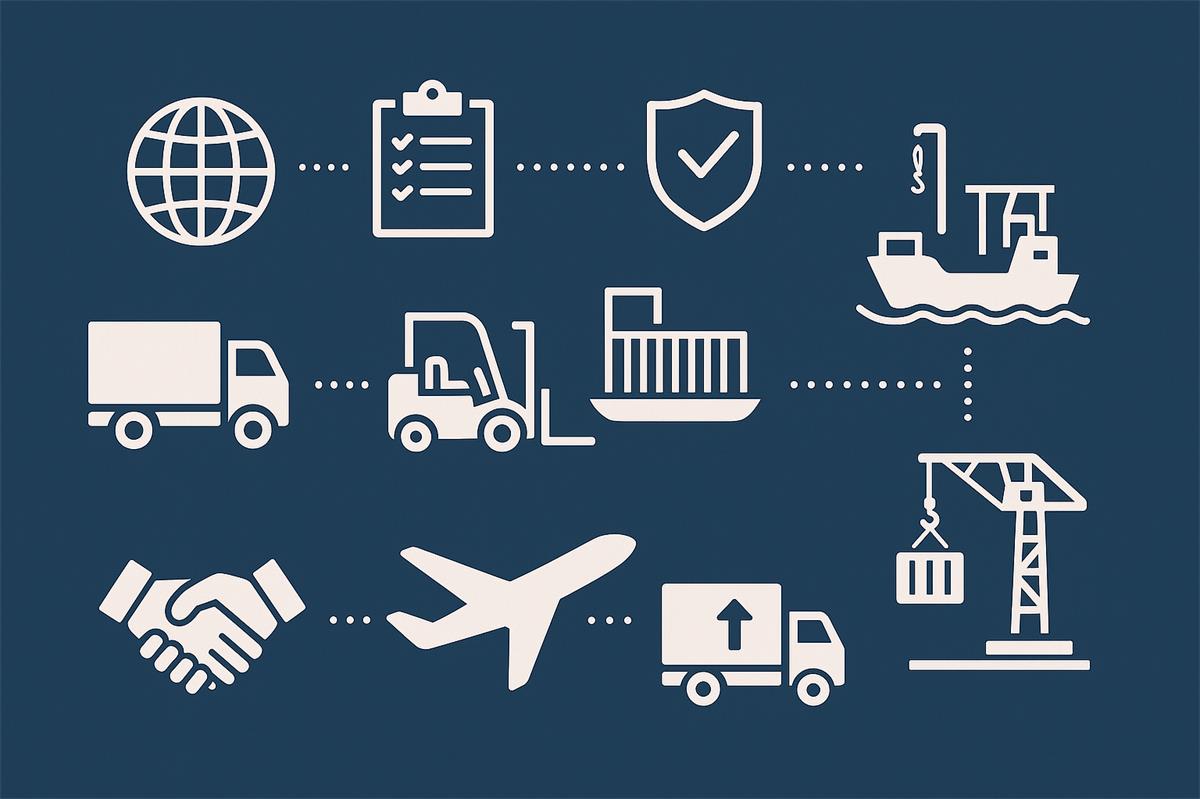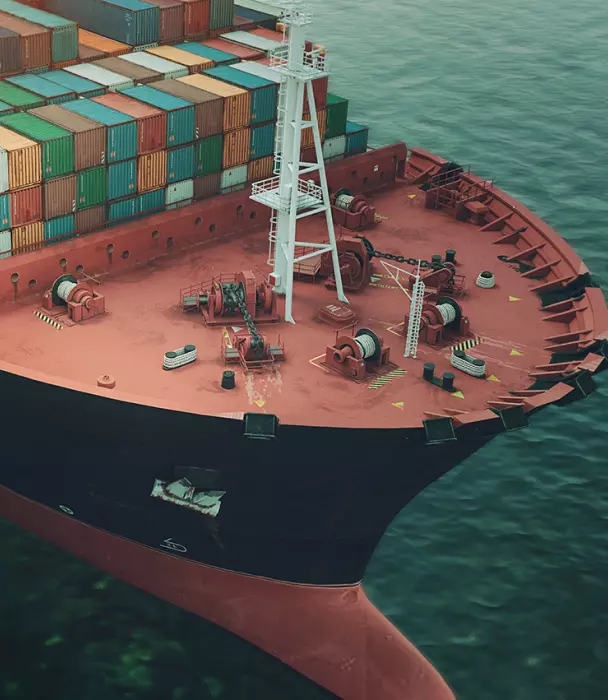When it comes to international trade, choosing the right Incoterm can make the difference between a smooth, predictable shipment and one plagued by unexpected costs and disputes. Yet, many importers and exporters rely on default choices, misunderstanding the significant impact these terms have on cost, risk, and control.
Developed by the International Chamber of Commerce (ICC), the Incoterms® 2020 rules are the globally recognized language of trade, clearly defining the responsibilities between seller and buyer. This guide will walk you through how to select the most suitable Incoterm for your specific shipment, ensuring clarity and efficiency every step of the way.
Understanding the Language of Incoterms
Before diving into how to choose the right Incoterm, it's essential to grasp the fundamental concepts they govern:
-
Delivery Point: This is the point at which the risk for the goods transfers from the seller to the buyer.
-
Costs: Incoterms specify which party is responsible for the various costs throughout the shipping journey, including transportation, insurance, customs clearance, and duties.
-
Obligations: Each rule defines the tasks and responsibilities of both parties, such as arranging for carriage, obtaining shipping documents, and handling import and export formalities.
A comprehensive Incoterms table, like the one available on our website (https://www.all-forward.com/Incoterms), provides a detailed breakdown of these responsibilities for each of the 11 rules, making it an invaluable reference tool.
Why Choosing the Right Incoterms Matters
Choosing inappropriate Incoterms can lead to:
Unexpected costs
Disputes over damaged goods
Customs delays
Lack of insurance coverage
Operational inefficiencies
How to Choose the Right Incoterm: A Practical Approach
The optimal Incoterm for your shipment depends on several key factors. By carefully evaluating these, you can make an informed decision that aligns with your business needs and risk appetite.
1. Consider the Mode of Transport
The Incoterms® 2020 rules are divided into two categories based on the mode of transport:
-
Rules for Any Mode or Combination of Modes: These seven rules apply to any type of transport, including air, road, rail, and sea (especially for containerized cargo). They are:
-
EXW (Ex Works)
-
FCA (Free Carrier)
-
CPT (Carriage Paid To)
-
CIP (Carriage and Insurance Paid To)
-
DAP (Delivered at Place)
-
DPU (Delivered at Place Unloaded)
-
DDP (Delivered Duty Paid)
-
-
Rules for Sea and Inland Waterway Transport: These four rules are specifically designed for bulk cargo or non containerized goods transported by sea or inland waterway, or for shipments sold on conventional vessel terms where delivery is defined alongside or onboard the vessel:
-
FAS (Free Alongside Ship)
-
FOB (Free on Board)
-
CFR (Cost and Freight)
-
CIF (Cost, Insurance and Freight)
-
Important: For containerized shipments, the seller typically hands over the container to the carrier at an inland location or terminal, not directly at the vessel. When using FOB for containerized cargo, it’s essential to clearly define the point at which risk and responsibility transfer from seller to buyer.
2. Evaluate Your Risk Tolerance
A critical function of any Incoterm is to define the precise moment when responsibility for loss or damage, i.e., the transfer of risk, moves from seller to buyer. Understanding your comfort level with assuming this risk is key to selecting the right term.
- For Sellers Seeking Low Risk: EXW (Ex Works) places the maximum responsibility and risk on the buyer. The seller's only obligation is to make the goods available at their own premises. From that point forward, the buyer bears all risks and costs.
- For Buyers Seeking Low Risk: DDP (Delivered Duty Paid) represents the maximum obligation and risk for the seller. The seller is responsible for the entire journey, including transport, insurance, and customs clearance, bearing all risks until the goods are delivered ready for unloading at the named place of destination.
-
For a Balanced Risk Approach: Most international trade happens in the middle ground. Incoterms like FCA (Free Carrier), CPT (Carriage Paid To), CIP (Carriage and Insurance Paid To), and DAP (Delivered at Place) offer a more balanced distribution of risk. In these scenarios, the seller handles the export formalities and arranges for carriage, but the risk transfers to the buyer once the goods are handed over to the first carrier. This allows for a clear separation of duties and risks at a logical point in the transit journey.
Important Note on Insurance: CIP and CIF
It's vital to understand the specific insurance requirements mandated by certain Incoterms.
-
Under the Incoterms® 2020 rules, CIF (Cost, Insurance and Freight) and CIP (Carriage and Insurance Paid To) are the only two terms that obligate the seller to purchase insurance for the buyer's benefit.
-
CIF requires a minimum level of insurance coverage (Institute Cargo Clauses C).
-
CIP requires a higher, more comprehensive level of insurance coverage, compliant with Institute Cargo Clauses (A), covering all risks. The insurance value should be for at least 110% of the invoice value.
This distinction is crucial. If you are the buyer under a CIP term, you benefit from a higher level of insurance coverage being arranged by the seller, offering you greater protection.
3. Define Cost and Control Preferences
Closely linked to risk is the allocation of costs and the level of control over the shipping process.
-
Maximum Control for the Buyer: Under EXW, the buyer controls the entire shipping process, from collecting the goods to final delivery. This can be advantageous for buyers with established logistics networks who may be able to secure more favorable shipping rates.
-
Maximum Control for the Seller: D-group Incoterms (DAP, DPU, and DDP) give the seller the most control over the transportation chain. This can be beneficial for sellers who want to provide a door-to-door service for their customers.
Consider who is in a better position to arrange and pay for the main carriage, insurance, and customs formalities. Often, the party with the larger volume of shipments can negotiate better terms with carriers and freight forwarders.
4. Factor in the Type of Shipment and Destination
The nature of your goods and their destination can also influence your choice of Incoterm.
-
Containerized vs. Non-Containerized Cargo: For containerized shipments, FCA is often a more appropriate choice than FOB. With FCA, the risk transfers when the goods are delivered to the carrier nominated by the buyer at a named place, which can be the seller's premises or another location. With FOB, the risk transfers when the goods are on board the vessel.
-
Destination Country Regulations: Some countries have complex import procedures. In such cases, a more experienced party in handling those specific regulations should be responsible for import clearance. For an exporter unfamiliar with the destination's customs laws, a term like DDP could be risky, while for an importer, it might be the most convenient option.
Practical Recommendations
|
Profile |
Best Practice |
|
Small exporter starting out |
Use FCA to retain control up to local carrier handover |
|
Large buyer importing from multiple countries |
Use FOB/CFR/CIF for ocean shipments; DAP/DDP for final delivery |
|
E-commerce seller (small parcels) |
DDP or DAP to provide seamless delivery to customers |
|
Trading companies buying FOB and selling CIF |
Common practice to manage spread and control risk margins |
Final Thoughts
Choosing the right Incoterm is a strategic decision. By carefully considering the mode of transport, your risk tolerance, your preferences for cost and control, and the specific nature of your shipment, you can select a term that prevents disputes and creates a clear, mutually beneficial trading relationship. Always remember to specify the exact named place in your contract (e.g., FCA Shanghai Terminal 3), as this precision is key to a successful shipment.
Tip: Need a quick Incoterms refresher? Our Incoterms Table offers a clear, easy to use summary of all terms and their key differences- a valuable reference when planning your next shipment: https://www.all-forward.com/Incoterms.


